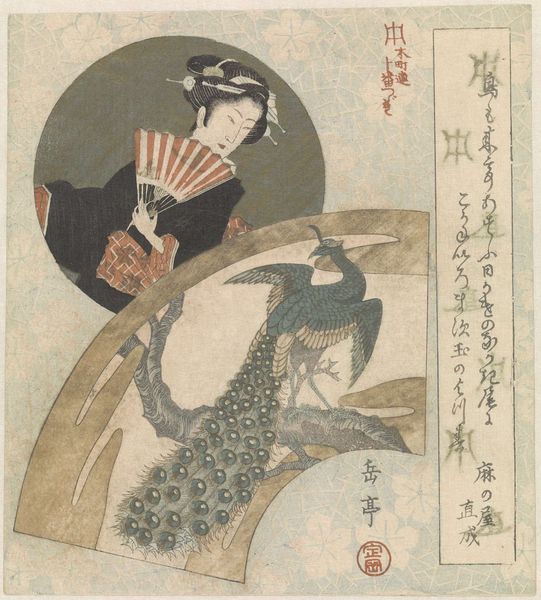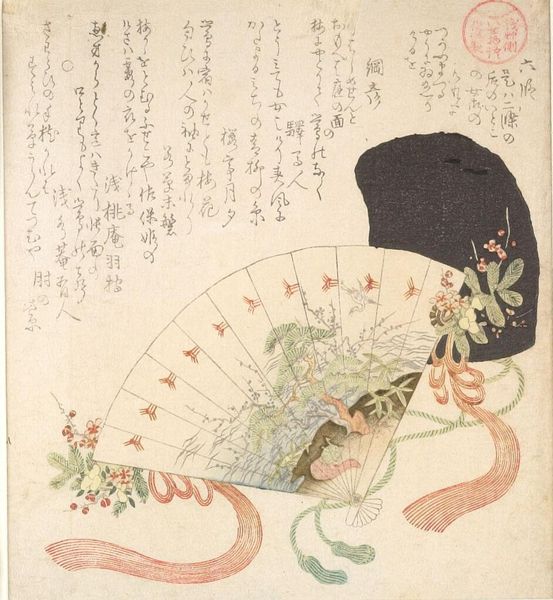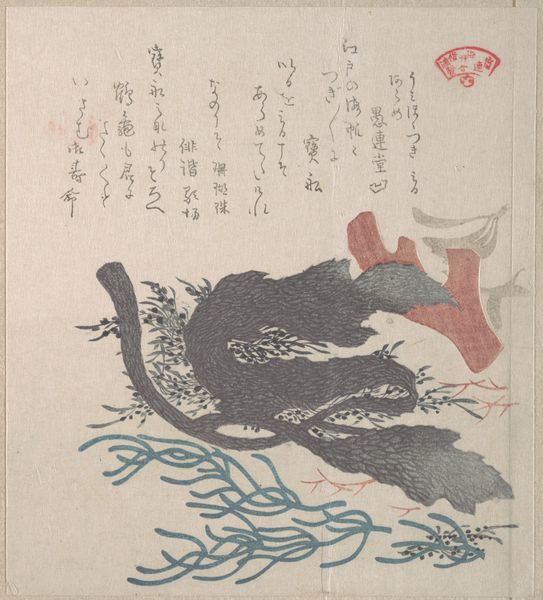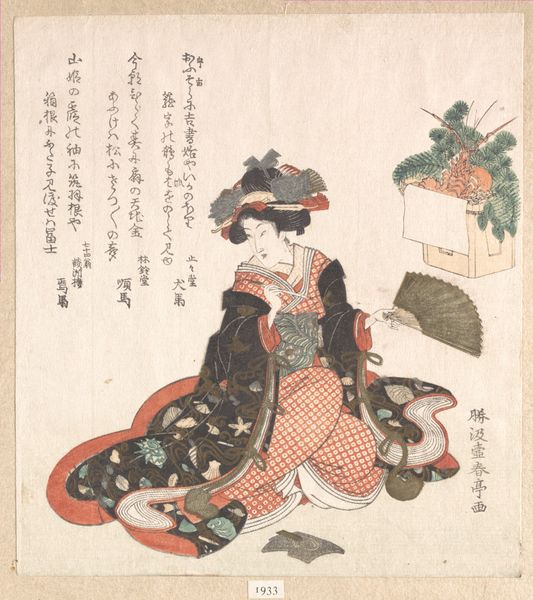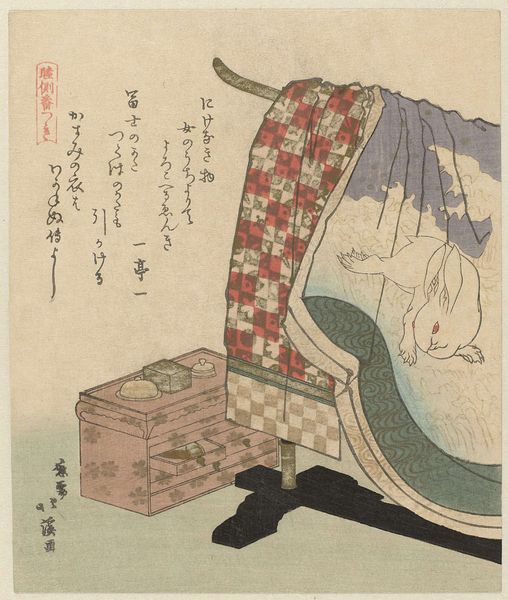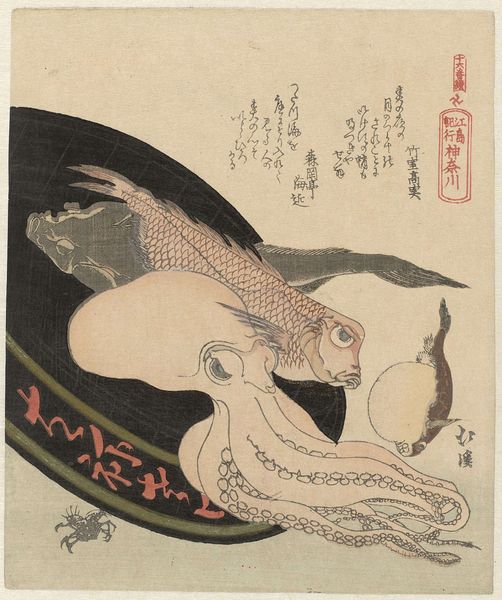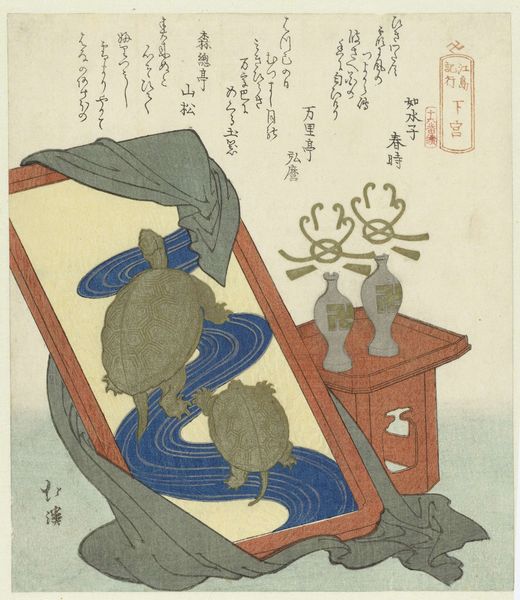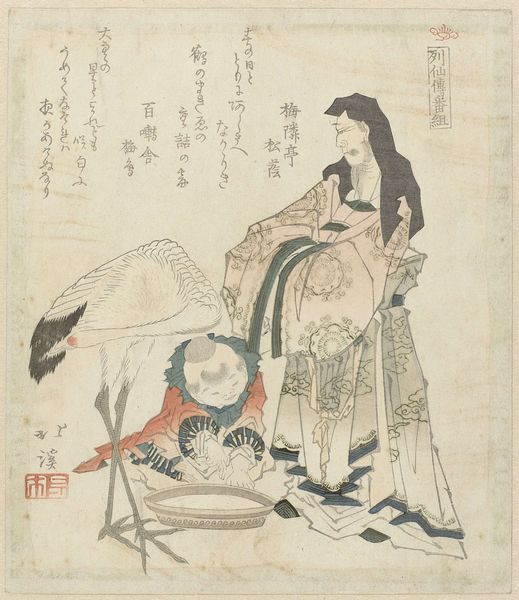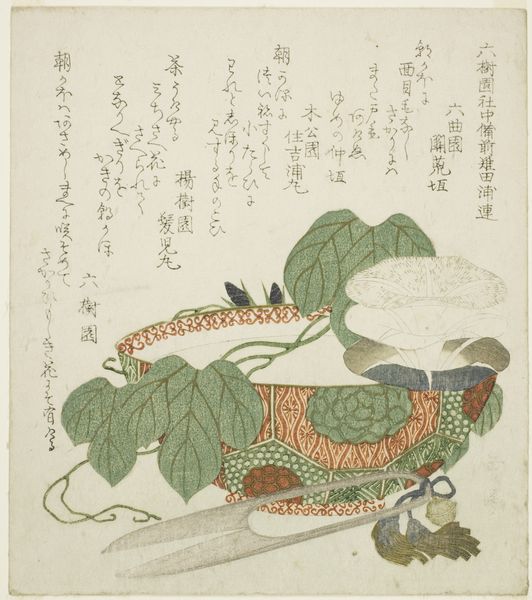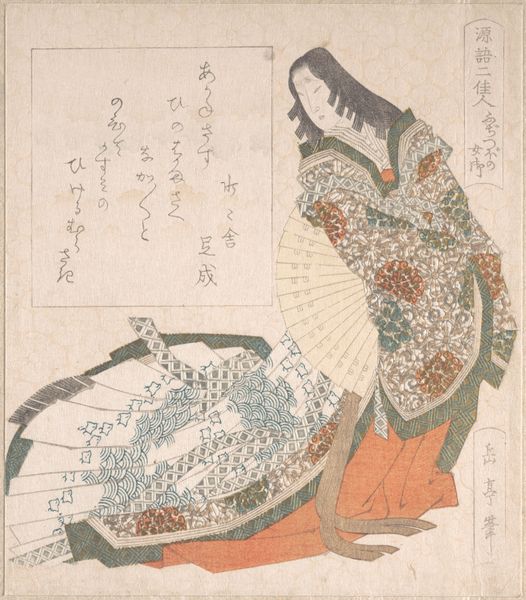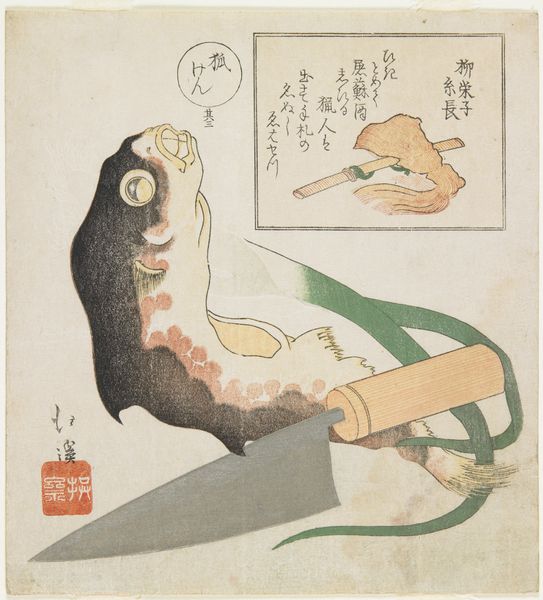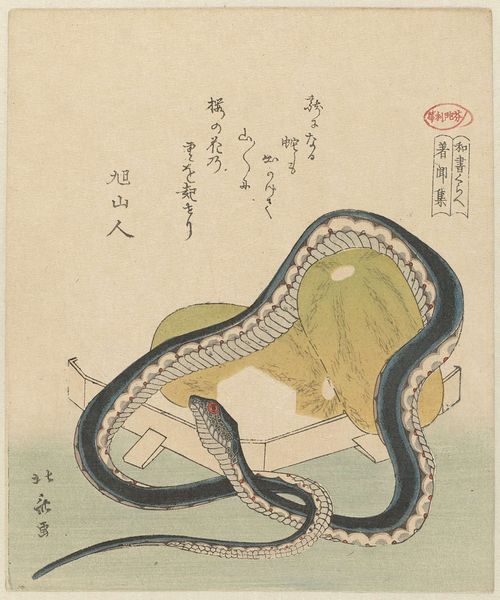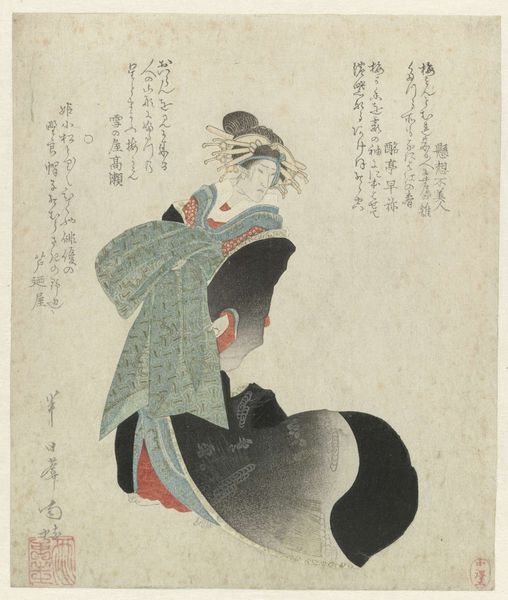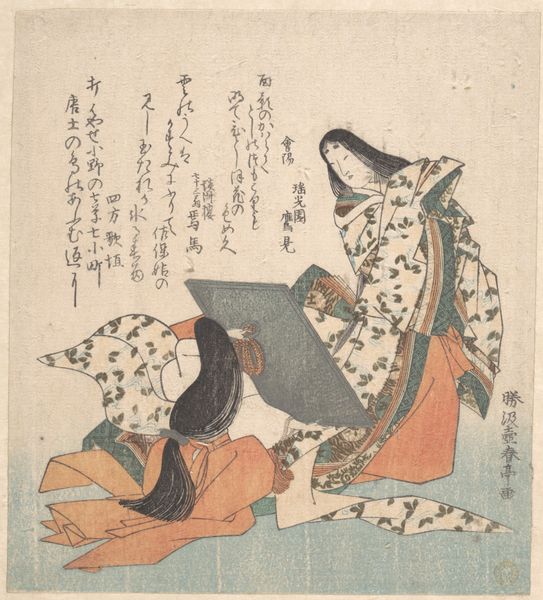![['Tiger', 'A fierce tiger drawn from life'] by Utagawa Kunimaro I](/_next/image?url=https%3A%2F%2Fd2w8kbdekdi1gv.cloudfront.net%2FeyJidWNrZXQiOiAiYXJ0ZXJhLWltYWdlcy1idWNrZXQiLCAia2V5IjogImFydHdvcmtzLzViMDgwNzc2LTk0NjAtNGE2NS05N2UwLWY5NmEzMWRiNjhjYi81YjA4MDc3Ni05NDYwLTRhNjUtOTdlMC1mOTZhMzFkYjY4Y2JfZnVsbC5qcGciLCAiZWRpdHMiOiB7InJlc2l6ZSI6IHsid2lkdGgiOiAxOTIwLCAiaGVpZ2h0IjogMTkyMCwgImZpdCI6ICJpbnNpZGUifX19&w=3840&q=75)
drawing, print, ink, woodblock-print
#
drawing
#
water colours
#
animal
# print
#
impressionism
#
asian-art
#
landscape
#
ukiyo-e
#
figuration
#
ink
#
coloured pencil
#
woodblock-print
Dimensions: height 370 mm, width 251 mm
Copyright: Rijks Museum: Open Domain
Editor: Here we have "Tiger, A fierce tiger drawn from life" from 1860 by Utagawa Kunimaro I, currently residing in the Rijksmuseum. It looks like a woodblock print, perhaps with watercolors. The animal looks more like a goofy leopard than a fearsome tiger, and the overall feel is pretty humorous. What am I missing? What can you tell me about it? Curator: The humor you perceive isn't accidental. Notice how the tiger's supposed ferocity is undermined by its almost comical proportions, its wide-eyed stare, and the soft, rounded shapes that define its body. It's holding a bird. Do you think that heightens the visual humor? Editor: I do! The poor bird looks like a fancy chicken, adding to the absurdity. It's the opposite of imposing. Is this perhaps a caricature, rather than a realistic portrayal? Curator: Precisely! Japanese art of this period played with symbols of power and status. The tiger, often a symbol of strength and courage, is here presented in a domesticated, almost playful way. What effect might this have had on viewers? Editor: So it’s almost like a wink to the audience? By subverting expectations, perhaps Kunimaro I was gently mocking authority or societal norms? It feels pretty contemporary for 1860. Curator: Consider that subversion alongside the rise of the merchant class at that time. Perhaps the artist critiques established hierarchies, offering a humorous alternative through this reimagined symbol. Symbols have the potential to express multiple conflicting ideas, all at the same time, based on social needs. It gives a voice to change. Editor: That's fascinating. So, this seemingly simple print is layered with commentary about social power, expectation, and the fluidity of symbols? This really does complicate my initial perception of just "goofy." Curator: Exactly. What seems like a lighthearted image invites us to consider the tiger not just as an animal, but as a vessel for cultural meaning and evolving societal values.
Comments
No comments
Be the first to comment and join the conversation on the ultimate creative platform.
